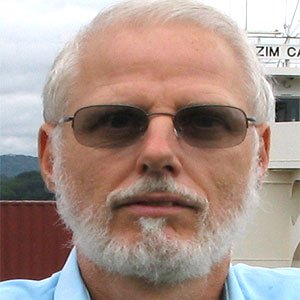Professor Atholl Johnston

Professor Emeritus of Clinical Pharmacology
Centre: Clinical Pharmacology and Precision Medicine
Email: a.johnston@qmul.ac.uk
Telephone: +44(0) 20 7882 6055
Profile
ORCID iD: 0000-0001-5787-2270
Atholl Johnston is Professor Emeritus of Clinical Pharmacology at the Faculty of Medicine and Dentistry, Queen Mary University of London, visiting Professor of Forensic Pharmacology and Toxicology at St George’s, University of London, and the Science Director of the Laboratory of Analytical Services International. He is a Fellow of the British Pharmacological Society, the Royal College of Pathologists, the Royal Society of Medicine, the Royal Statistical Society and an honorary member of the Faculty of Pharmaceutical Medicine. He is a Chartered Scientist, a European Registered Toxicologist, and a state-registered Clinical Scientist. He holds the following university degrees - Bachelor of Science (with honours) in biochemistry (toxicology), Bachelor of Arts (with honours) in mathematics and statistics, Master of Science in applied statistics and Doctor of Philosophy in pharmacology.
Impact
Biosimilars
Professor Johnston’s research and scholarship has assisted with the introduction of biosimilars to the NHS. He was the pharmacokinetic and statistical expert on the data safety monitoring board for the pivotal studies that led to the introduction of the first biosimilar to infliximab, Remsima®.
He has also played an important role in the breaking of subsidiary patents obstructing the introduction of biosimilar products. An example of this is his work in invalidating one of the patents for Adalimumab, known as Humira®, in hearings conducted in the High Court in the UK, and in The Hague, in the Netherlands. Adalimumab is used to treat rheumatoid arthritis and its main patent was to expire in 2018. Several manufacturers sought to launch cheaper biosimilar products but were blocked by subsidiary patents. Professor Johnston’s evidence in the High Court was pivotal in invalidating the Humira® patent and this has resulted in a saving of some £150 million / year to the NHS.
Road Safety
In 2012, Prime Minister David Cameron, concerned to tackle increased road safety problems caused by drug-driving, set out to reinforce UK road traffic legislation. The aim was to help police enforce Section 4 of the Road Traffic Act, so as to be better able to demonstrate beyond reasonable doubt that a driver was unfit to drive through drink or drugs. Professor Johnston was appointed to two expert panels convened by The Department for Transport (DfT) and The Home Office to look at the evidence and to advise on which drugs to include in legislation and at what blood concentration the limits should be set.
Following the advice of these panels, per se concentration limits for driving were set for seventeen drugs and new drug driving legislation came into force in March 2015, taking on board many of the panels’ recommendations. The impact of the legislation has been profound. On 27 August 2017 a report evaluating the effectiveness of the first year of implementation found that the Government legislation on drug driving is working. The new offence has led to additional police activity against drug drivers, and higher prosecution and conviction rates. Section 4 offence conviction rates have been approximately 80% since 2012, and in 2015, proceedings brought for Section 5A offences had a conviction rate of 98% – which is similar to those achieved for drink-driving (96%). The introduction of the Section 5A drug-driving offence has resulted in over 40,000 additional convictions for drug-driving.
Forensic toxicology
Professor Johnston has held, and holds, several national leadership roles in Forensic Toxicology. He has been a committee member of the UK Register for Toxicologist, Chair of the Royal College of Pathologists’ Specialist advisory committee (SAC) for Toxicology and is currently a member of the College’s Death Investigations Group. He is treasurer of the LTG (formally The London Toxicology Group) and is vice-president of the UK and Ireland Association of Forensic Toxicologists (UKIAFT). In addition, he is Science Director of Analytical Services International, one of the very few UK laboratories accredited to ISO 17025 by the UK Accreditation Service (UKAS) for the analysis of all seventeen drugs in blood from motorists suspected of committing Section 5A Road Traffic Act offences.